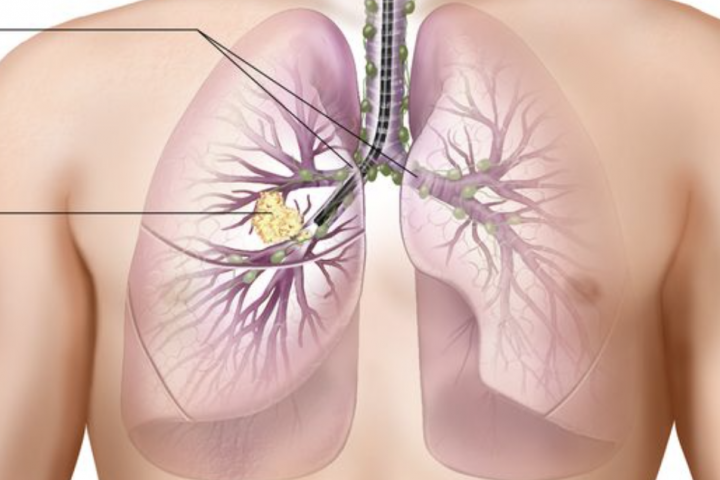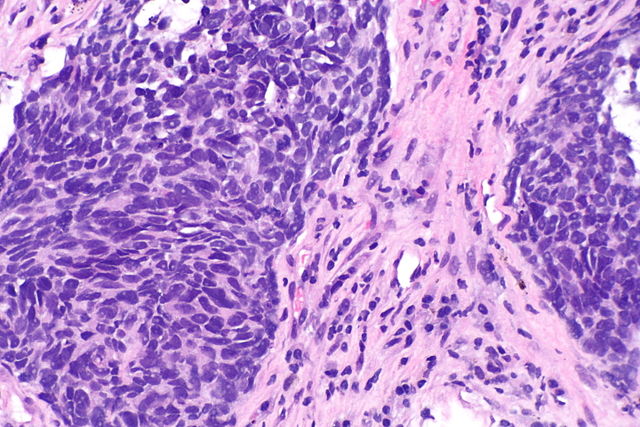ESMO 2023 Update – ALINA: Adjuvant Alectinib Improves Disease-Free Survival in Resected Early-Stage Non-Small Cell Lung Cancer
Author:
Lei Deng, MD
Assistant Professor/Medical Oncologist
Thoracic, Head & Neck Medical Oncology
University of Washington/Fred Hutchinson Cancer Center
Key Points:
- In phase 3 ALINA trial, completely resected, stage IB (≥4 cm)–IIIA, ALK+ non-small cell lung cancer (AJCC 7) receive alectinib for 24 months or chemotherapy for up to 4 cycles
- At 2023 ESMO congress, disease-free survival was reported to be significantly improved in the alectinib arm (HR 0.24)
- Secondary endpoint of CNS-disease free survival was also improved (HR 0.22)
- This is the first ALK inhibitor improving disease-free survival in non-small cell lung cancer.
- An open question up for debate is whether adjuvant chemotherapy should be omitted or administered in sequential or concurrently with adjuvant alectinib
Alectinib is a 2nd-generation ALK inhibitor for metastatic non-small cell lung cancer. ALEX trial showed a median progression-free survival (PFS) of 35 months and a 5-year overall survival (OS) of 63% as a first line therapy1. With the success of adjuvant osimertinib, the result of ALINA has been eagerly awaited.
The ALINA trial was presented at 2023 ESMO congress in Madrid, Spain (Abstract Number: LBA2). This phase 3 trial randomized completely resected, stage IB (≥4 cm)–IIIA(AJCC 7), ALK+ non-small cell lung cancer (NSCLC) to alectinib for 24 months or chemotherapy for up to 4 cycles. Of note, ADAURA trial randomized patients after adjuvant chemotherapy if chemotherapy was chosen, while ALINA directly compared alectinib without chemotherapy vs. chemotherapy. The hierarchically design of this trial requires statistical analysis of stage II-IIIA first then in the Intent-to-treat (IIT) population (stage I-IIIA).
257 patients were randomized. After a median follow-up of 27.8 months, disease-free survival (DFS) was significantly improved in stage II-IIIA (HR 0.24; 95% CI: 0.13–0.45) and IIT population (HR 0.24; 95% CI: 0.13–0.43). The 24-and 36-month DFS rate was 93.8% and 88.3% in the alectinib arm and 63.0% and 53.% in the chemotherapy arm, respectively among stage II-IIIA. Importantly, CNS-DFS improvement was also observed (HR 0.22; 95% CI 0.08–0.58). Although small in number, trend in stage IB patients still favor adjuvant alectinib. Adverse events leading to treatment withdrawal was only 5.5%.
Adjuvant alectinib is a well-tolerated regimen for resected early-stage ALK+ non-small cell lung cancer and should be a standard of care. The DFS and CNS-DNS improvement is clinically relevant and meaningful for patients. Contrary to ADAURA, this trial directly compares adjuvant alectinib without chemotherapy vs. adjuvant chemotherapy. The absolute improvement of OS by adjuvant chemotherapy is small but well characterized. The open question that is up for debate is whether adjuvant chemotherapy should be omitted or administered in sequential or concurrently with adjuvant alectinib in this patient population.
- Mok T, Camidge DR, Gadgeel SM, et al. Updated overall survival and final progression-free survival data for patients with treatment-naive advanced ALK-positive non-small-cell lung cancer in the ALEX study. Ann Oncol 2020;31:1056-1064.









